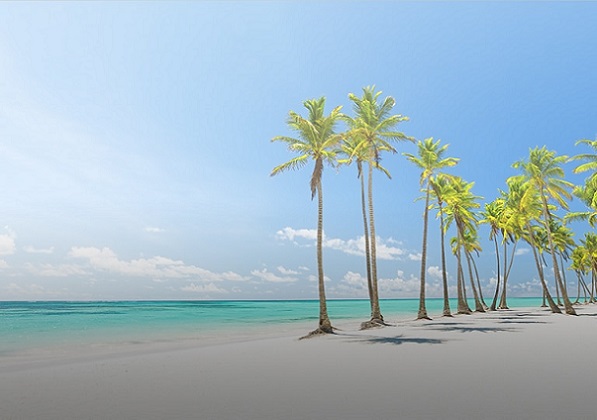[Many thanks to Peter Jordens for bringing this item to our attention.] DOSSIER (2023): “’Fragile splendor’: Caribbean as a Travel Destination in Afro-Caribbean Literature,” PerspectivasAfro, Journal of Afro Latin American and Afro Caribbean Studies (University of Cartagena, Colombia). The deadline for submissions is August 31, 2022. See more information below:
Guest Editors: Lucía Stecher (Universidad de Chile), Francisco Aiello (Universidad Nacional de Mar del Plata – CONICET), andGiselle Román-Medina (Pontificia Universidad Católica de Valparaíso)
Description: In the history of Caribbean societies, various types of travel have played a central role: those that brought conquerors and colonizers to different territories, the forced travel of the enslaved African diaspora, the movement of indentured servants from Asia after the abolition of slavery, and many others that have populated the region. Subsequently, intra-Caribbean migrations and the travel of the local population to the metropolis and other destinations with significant diasporic populations have been of great importance. Today the Caribbean occupies an important place in the leisure and tourism imaginaries of the globalized world. Those who live outside the region tend to associate it with beaches, palm trees, warmth, accessible bodies, and other attractive signifiers, almost always belonging to the order of nature rather than culture.
The tourist industry, which became more salient after the 1980s when it began to be promoted as the region’s economic salvation, has played a key role in reproducing and disseminating signifiers which popularize a stereotyped exoticization. However, critical perspectives marked by disenchantment have also been forged, as Aimé Césaire did in his famous poem Cahier d’un retour au pays natal (1939) and Frantz Fanon did in his early identification of a nexus between plantations and the tourism industry, and its potential to obstruct the decolonization process by tying the Caribbean to economic dependence. This relationship between plantation and tourism has been taken up by recent researchers such as Ian G. Strachan (2002). It is illustrative that former sugar mills and ‘haciendas’ have been transformed into tourist attractions, which do not usually commemorate the victims of slave and day labor. The trip to the Caribbean is also represented as traveling in time allowing its visitors to fantasize about being “conquistadors” and “hacendados”, “giving orders” and “being served” in the same imperial languages, English, French, Spanish, Dutch (George Gmelch, 2021). In recent years, the intellectual Roberto Zurbano has warned about the (neo)racism that has (re)emerged in Cuba due to the growing importance of tourism for the country’s economy.
The stereotyped and simplified images of the region, as well as their exploitation by the tourist industry, have been reviewed and criticized with renewed perspectives in recent decades in literary texts by, among others, Jamaica Kincaid, Ana Lydia Vega, and more recently, Marta Aponte, Dany Laferrière and Aurora Arias. For this Dossier we are calling for articles that reflect on the links between Afro-Caribbean literature and the issue of travel to and within the region. The Afro-Caribbean population has not only been the object of exoticization and stereotyped treatment in travel literature to the Caribbean –written mainly by European and American travelers– but has also assumed the service roles that are fundamental for travel economies to function. Our proposal is to study narratives centered around travels to the Caribbean produced by Afro-Caribbean writers throughout the twentieth century and up to the present, analyzing how they represent and conceptualize the dynamics of power, exchange, negotiation, and exploitation and that can articulate the relationships between the tourism industry, travelers, local people, and territories. We define the Caribbean region in a broad sense, considering its different linguistic zones and its geographic variety: the inland and coastal regions as well as the dynamism of its diasporas.
Our proposal is to analyze Afro-Caribbean literature on travel considering the following perspectives, without excluding others:
- Representation of Afro-Caribbean subjectivities in relation to the problematic nature of travel.
- Relationships between leisure and work in literary representations of travel to the Caribbean.
- Privileged spaces of the contemporary tourist experience: the resort, the cruise ship, the bar, the beach, the boardwalk.
- Representations of the islands and territories bathed by the Caribbean Sea in Caribbean travel literature.
- The genre of travel writing today and with the Caribbean as a destination. Reflections on the place of the essay, the narrative, the graphic novel.
- Interactions between literature and other media (music, cinema, photography) in the reflection on the Caribbean as a travel destination.
- Aesthetic elaborations of the racialization and sexualization of Caribbean subjects from the extractivist mercantile perspective.
Deadline for submissions: August 31, 2022.
Send papers to luciastecher@gmail.com and copy to revistaperspectivas@unicartagena.edu.co
For submission guidelines, see https://revistas.unicartagena.edu.co/index.php/PersAfro/about/reglamento https://revistas.unicartagena.edu.co/index.php/PersAfro/bibliografia
Source: https://revistas.unicartagena.edu.co/index.php/PersAfro/announcement/view/21 (available in Spanish, English and French)


One thought on “CFP “Fragile splendor: Caribbean as a Travel Destination in Afro-Caribbean Literature””